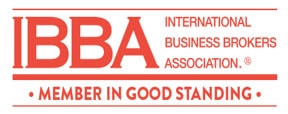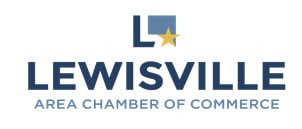Preparing For Sale
Make Yourself Redundant
The buyer’s greatest fear is that you are the heart and soul of your business and that when you walk out the door, so will the business. In many cases this is true, because you have built the business around yourself; you have all the knowledge and skills to run the business, and you have great difficulty in delegating the various functions.
What you have is not a business, but a very demanding job from which you can’t resign. No wonder you want to sell it! And if it appears like this to the buyer, why would he want to pay perfectly good money to rescue you from your plight?
The answer is to:
Systematize Your Business
Preparing for sale is a very systematic process. When you have all the various functions within your business systematized and thoroughly documented, delegation is no longer such a problem. Each person should have a clearly defined role, a chain of command, and a designated set of tasks and procedures which when carried out competently, leads to measurable and desired outcomes. A buyer can then see himself fitting comfortably into this business.
Document Your Business
You need to have a BUSINESS PLAN, so that you, and everybody in your team, knows exactly where you are headed and how you propose to get there.
As well as documenting your procedures, it also helps to document your relationships with other parties in your marketplace:
- With Suppliers – Your verbal, or “Handshake Agreements” look very flimsy to a potential buyer of your business. Converting these into written agreements wherever possible will make your business confidence-inspiring, and at the same time, the very process of putting them into writing will enable you to cement these relationships even further, and perhaps even improve your lines of supply.
- With Customers – If you can negotiate written agreements with your customers, you can make your business look that much stronger, and of course, the process of securing your outlets can often give you power to go back and re-negotiate your supply agreements.
- With Other Parties – Document your relationships with Industry Regulators, Trade Organizations, Quality Assurance, Environmental Protection Agencies, Health Department, and a whole host of other parties who have some power or influence over your business. Document these relationships so that a buyer can not only see where your business stands within its industry but also feel confident that its existence is not under any undue threat.
- Review your marketing and presentation, especially digital marketing.
Document Your Profit Performance
We are all more or less Tax driven, but the trap we set for ourselves is that it then becomes difficult to prove the true profitability of your business to a buyer. The solution is to adopt transparent, legal, tax avoidance strategies that will enable you to minimize your tax burden, whilst retaining the ability to clearly demonstrate your true profitability to a buyer through “Add-Backs”.
- Produce monthly profit reports. Within an open framework, you can produce monthly reports to demonstrate to your buyer your ability to monitor and manage the performance of your business. In hiding things from uncle Sam (not that you would do such a thing, of course!) it becomes too easy to lose sight of them yourself.
- Document capital expenditure. Rather than expense capital improvements as repairs and maintenance, capitalize them. This will add value to your balance sheet and improve your demonstrable profit.
If you don’t fear tax, you can present a much better picture to your potential buyer, his/her Accountant and Bank.
Before the buyer can purchase your business you need to convince his/her Accountant, who will not approve the price, or even the purchase, unless the figures “stack up”. Bank might not be willing to lend the buyer the money he needs to meet your price without an attractive looking set of figures.
Do Your Housekeeping
Just as with selling any other sort of property, in selling a business, first impressions count. There are a number of practical steps you can take to create a good first impression to a prospective purchaser. They may seem obvious, but then again, you might be surprised.
By taking these steps, you can not only increase the perception of value to your buyer, but also convert into cash and improved figures, many items which would otherwise be handed over at “no value” to the buyer on settlement:
- Tidy up your inventory. Sell off obsolete, or slow moving items. This will improve both your sales and your gross profit. Your buyer will be impressed that you are not holding any unsaleable stock. And it will eliminate any possible arguments over the valuation of such stock during the sale.
- Tidy up your plant & equipment. Make your workplace into an efficient working environment. Add a little paint here and there to make things look well maintained. Ensure that you eliminate oil leaks, anticipate Health Department requirements, and sell off and convert into cash any scrap, redundant or obsolete machinery and parts that are cluttering up the place.
- Tidy up your staff. Where possible, get your staff to take up their leave and other entitlements prior to sale. Get them to wear uniforms, and make sure they wear safety gear when required.
- Tidy up your premises. Have a look around with the eyes of a prospective purchaser. What would it look like to a critical new observer? The condition of your premises can say a lot about your profitability.
- Tidy up your balance sheet. An area of great concern to a prospective purchaser is the state of your debtors. Based on your figures, the buyer will have to do his cash flow and working capital forecasting to justify the purchase, and may be very nervous about taking on customers who look as though they take forever to pay their accounts. Now is a good time to bring them into line. You can use the improved cash flow to bring down your creditors and even take those settlement discounts. This will create a positive impression of the inherent strength of your business.
It would also help if you could remove from your balance sheet any items which are unrelated to the business being sold, and include, any assets which are not currently listed at their proper value.
Consider offering Seller Financing
For business sellers who want to sell their business quickly, offering seller financing can dramatically widen the pool of potential buyers. Here are some of the benefits of seller financing for sellers:
- Attract more buyers. Because sellers can be more lenient when it comes to financing requirements, more buyers will be able to afford to buy the business.
- Faster closing times. As stated above, seller financing can move much faster because it is not dependent on a bank’s drawn-out approval process. Financing can move forward as quickly as the seller receives a potential buyer’s information and decides to approve them for financing.
- Higher selling price. With the seller having control over the financing amount, they’ll also be able to ask for a higher price for their business without it affecting timeline or approval. What’s more, sellers will receive interest on the loan amount that they otherwise would be missing out on.
- Tax benefits. With seller financing, sellers receive monthly payments for their business drawn out over months or years. Reporting such incremental gains as opposed to large lump sums has tax benefits, including lowering income taxes (in comparison to a lump sum).
The top business brokers at Paradigm Business Brokers can guide you through the entire process as per your requirements & needs. Being the top business brokers in Dallas, selling businesses in the most effective & efficient manner is what we focus on.
Have any questions?
If you are considering selling your company and would like a confidential consultation, please contact us!



Call: 972.351.8861
Email: info@paradigmbb.com
333 East Bethany Dr., Unit J-110, Allen TX 75002
